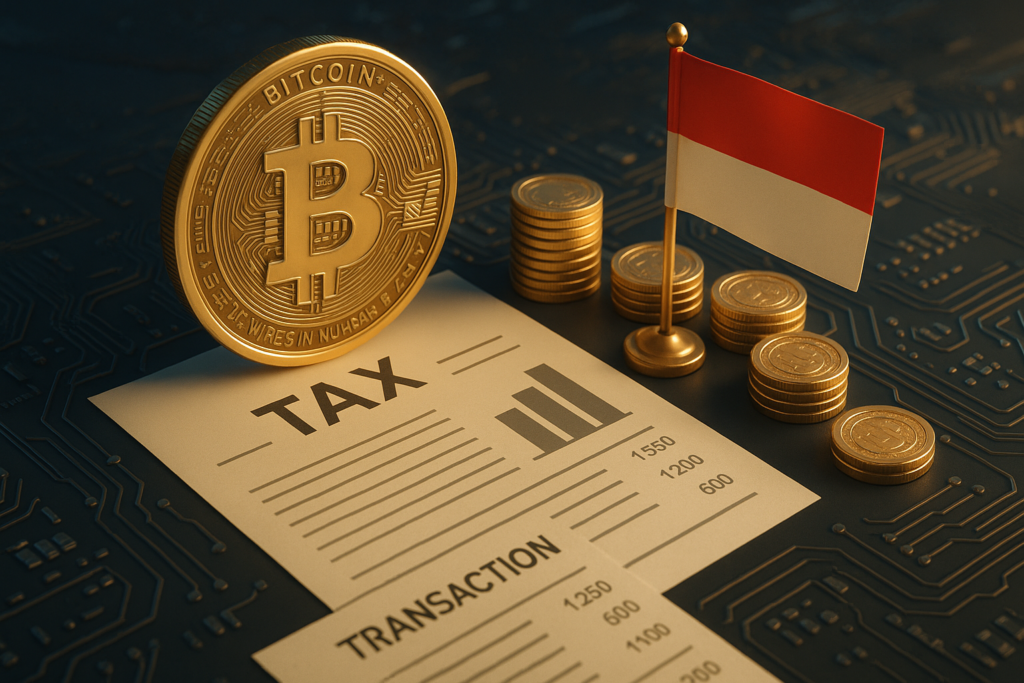Indonesia’s Ministry of Finance will introduce higher taxes on cryptocurrency transactions starting August 1, 2025, aiming to tighten fiscal policy and regulate the growing digital asset sector. The changes, reported by Reuters, impact both domestic and foreign crypto platforms, with foreign transactions seeing tax hikes of up to fivefold.
New Tax Structure for Crypto Sellers
Effective August 1:
- Domestic exchanges: Seller transaction tax will increase from 0.1% to 0.21%.
- Foreign exchanges: Seller tax will jump from 0.2% to 1%, a fivefold surge.
Trades via overseas platforms will now face much steeper tax burdens compared to those executed within Indonesia.
This move is seen as part of a broader effort to encourage the use of locally regulated exchanges and ensure tax compliance from foreign players in the Indonesian crypto market.
VAT Changes Favor Crypto Buyers
In a slight relief for crypto users, value-added tax (VAT) for buyers will be eliminated. Previously, purchasers were subject to VAT rates of 0.11% to 0.22% on each transaction. The removal is expected to reduce the net cost for retail investors and could stimulate more domestic trading activity.
Crypto Mining Also Impacted
Indonesia’s tax overhaul extends beyond trading:
- Crypto mining VAT will double from 1.1% to 2.2%.
- The 0.1% special income tax for mining operations will be scrapped in 2026, meaning miners will then be taxed under the standard personal or corporate tax rate, depending on their structure.
These changes reflect a shift toward treating crypto activities as mainstream economic operations, subject to full taxation.
Indonesia’s Growing Crypto Appeal
Despite the tax increase, global exchanges continue to eye Indonesia. In June, Hong Kong-based OSL Group announced a $15 million acquisition of a 90% stake in Evergreen Crest, an Indonesian crypto platform. OSL cited Indonesia’s young population, strong economic growth, and rising crypto adoption as key reasons behind the move.
Final Thoughts
While Indonesia’s tax hikes may increase transaction costs for crypto traders and miners, the policy also reinforces regulatory clarity and market maturity. By incentivizing domestic exchange use and tightening rules on mining, Indonesia is aligning its crypto market with global standards — potentially making it a safer, more transparent space for digital asset investment.
As Southeast Asia’s largest economy ramps up its crypto oversight, market participants will need to adapt swiftly or face higher costs.
Disclaimer
This content is for informational purposes only and does not constitute financial, investment, or legal advice. Cryptocurrency trading involves risk and may result in financial loss.
